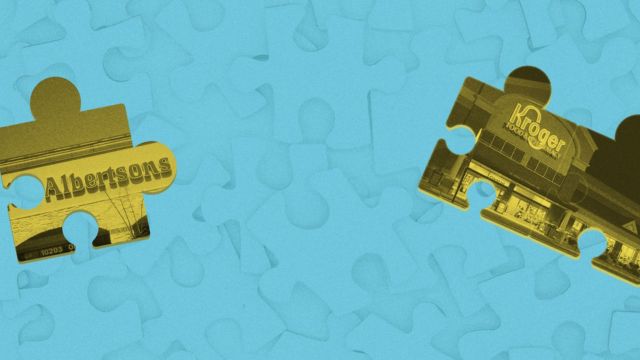Opinion: The 11th-Hour Legal Twist in the Free Market Merger Saga
Washington state is seeking to prevent Kroger and Albertsons from merging.
Attorney General Bob Ferguson, who is also a candidate for governor of Washington, asserts that the merger “is bad for Washington shoppers and workers.”
According to Ferguson, “competitive businesses are the foundation of free enterprise, and consumers gain from this competition.” Customers will pay more at the grocery store because there won’t be as many options and less competition in the market. That is wrong, and the goal of this case is to prevent this detrimental merger.
Let’s examine some of Ferguson’s assertions in more detail.
“Competitions between businesses are the foundation of free enterprise, and they benefit consumers.” There will be less competition and fewer options for shoppers.
Indeed, competition is at the heart of free enterprise. These days, the three biggest companies in the supermarket business are Walmart, Amazon, and Costco. It’s likely that during the last 30 days, you purchased at one of the three locations.

Walmart/Sam’s Club holds a 30% market share in the grocery industry in the United States. Costco adds 7%. Amazon is growing rapidly, making up over 5% of the market. And remember this: there are more than 250 million members of Costco, Walmart+, and Amazon Prime.
Read More: Kelly-Moore Paints Announces Closure After Nearly 80 Years in Business
Even if the merger between Albertsons and Kroger goes through, the International Center for Law and Economics estimates that it would only represent 9% of total sales in the country. However, it would draw the attention of the Big Three, who currently hold a 42% market share, raising competition.
“At the grocery store, they will pay more.”
In actuality, since the chains will be in direct competition with one another, the merger will probably result in cheaper costs. Strategic Resource Group economist told Yahoo Finance recently “Kroger’s acquisition of Albertsons is the last, best, and final chance to level the playing field.”
Why this time is it?
The lawsuit’s timing is peculiar. The sale is being examined by the Federal Trade Commission (FTC) to ensure compliance with antitrust rules. That’s precisely what they ought to be doing. We anticipate hearing back within the following month. It’s similar to a coach calling for instant replay during a play and filing a case before the FTC makes a ruling.
According to a statement from Kroger, “We believe our merger with Albertsons and the comprehensive divestiture to C&S will result in the best outcomes for customers, associates, and our communities.”
Closing of Stores
Albertsons and Kroger are aware of the complaints leveled at the agreement. The companies claim that to allay any concerns over a monopoly in specific areas, they will sell 413 locations and eight distribution hubs.
There are very few sites across the nation where you may find both Albertsons and Kroger. This is evident from a review of all the businesses’ locations.
To ensure that concerns about competition are reduced, Albertsons and Kroger have revealed plans to spin off their stores to a different business. The announcement made recently guarantees that no stores will close as a result.
The Prior Lawsuit Was Unsuccessful
Bob Ferguson has previously filed a lawsuit against Albertsons and Kroger. After the transaction was announced, the Washington AG attempted to halt a dividend that was given to shareholders of Albertsons. The lawsuit was unsuccessful.
In the end, There are undoubtedly worries about how the merger will affect unions in a state like Washington where union membership is high. Paradoxically, stopping the merger will only benefit non-union stores like Walmart and Amazon.
For a few months now, Washington State has opposed the concept of a merger. Legislation mandating that employees be retained on the job for a minimum of 180 days has even been filed by certain lawmakers.
With every proposition, there’s apprehension about what might be. However, we shouldn’t allow fear to sabotage a chance to boost competition and enhance the consumer experience.
